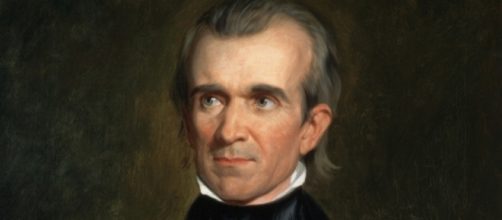There is again debate surrounding James K. Polk, the 11th President of the United States of America, but this time it is not about his legacy or presidential ranking. There is a proposal going through the tennessee legislature that is raising quite a debate about moving Polk's body off of the grounds of the state capital in Nashville to Columbia.
Move has support and opposition
The debate surrounding moving the former president's body has support and opposition, but in the end it has to go through several steps, the first of which has already happened.
The Tennessee Senate voted 20-6 to pass the resolution to move James K. Polk's body. Tennessee's House still has to vote on the matter, and the move needs the approval of the court and the Tennessee Historical Society. Supporters of the move argue that moving Polk to Columbia, where the James K. Polk Home and Museum is, would be a way to rightly honor him and move him from his current obscure site. People opposing the move, including the Tennessee state historian, say that it desecrates the president's body and that it is being done to just bring money and tourism to the small town of Columbia. Polk's ancestors have been arguing on both sides of the debate.
Polk's fourth interment?
Since his death from cholera in 1849, just over three months after leaving office, President Polk's body has been moved on three different occasions.
Following Polk's death, he was temporarily buried in the Nashville City Cemetery due to dying from an infectious disease. He was then moved to the lawn of his home "Polk Place" where he stayed until 1893. His wife, First Lady Sarah Childress Polk, had the longest widowhood of any first lady since she lived for 43 years after Polk's death until 1891. Two years after Sarah Polk's death, both bodies got moved from "Polk Place" to where they currently reside on the capital grounds due to a legal battle over Polk's will. This legal battle would lead to his heirs selling the building and it being demolished in 1901. If this current resolution passes the bodies of Polk and his wife will be moved about 50 miles south to the grounds of the James K. Polk Home and Museum in Columbia.

